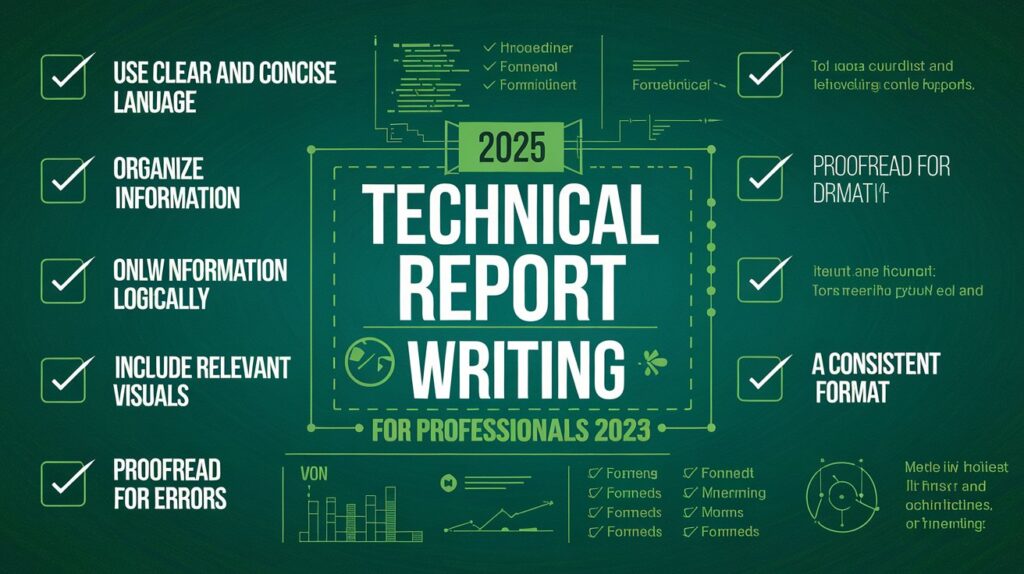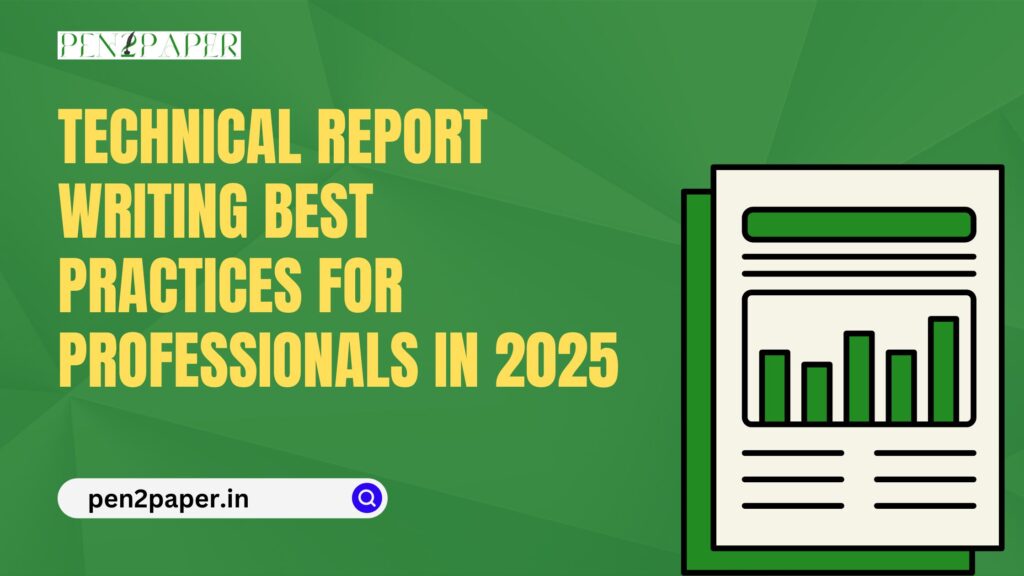Technical report writing is an essential skill for professionals across industries in 2025. Whether you are an engineer, scientist, or project manager, the ability to craft clear, concise, and well-structured technical reports is critical for effective communication. This blog post will guide you through the best practices to master technical report writing, ensuring your documents stand out for accuracy and professionalism.

Why Technical Report Writing Matters
Technical report writing is more than just documenting findings; it’s about conveying complex information in an accessible way. A well-written report:
- Enhances decision-making processes.
- Establishes credibility and professionalism.
- Serves as a reliable reference for future projects.
In 2025, with the growing demand for technical documentation in industries like IT, manufacturing, and renewable energy, mastering technical report writing is non-negotiable.
Best Practices for Technical Report Writing
1. Understand Your Audience
Technical report writing requires a deep understanding of your audience. Are you writing for industry experts, stakeholders, or non-technical readers? Tailor your language, tone, and content accordingly. Use technical jargon only when appropriate, and always define terms for clarity.
2. Plan Before You Write
The foundation of effective technical report writing lies in thorough planning. Before you begin, outline your objectives and structure. A typical technical report includes:
- Title Page: Clearly state the report’s title, author, date, and relevant identifiers.
- Abstract: Provide a concise summary of the report’s purpose, methodology, findings, and conclusions.
- Introduction: Define the scope, objectives, and background of your report.
- Body: Present detailed information, including methods, data analysis, and results.
- Conclusion and Recommendations: Summarize findings and suggest actionable next steps.
- References: Cite all sources and data references.
3. Use a Clear and Consistent Structure
Consistency is key in technical report writing. Use headings and subheadings to organize your content, ensuring each section flows logically. Numbered sections, bullet points, and tables can enhance readability and provide a professional appearance.
4. Prioritize Clarity and Conciseness
Avoid unnecessary complexity in your writing. Use:
- Short sentences for clarity.
- Active voice to make statements direct and engaging.
- Visual aids like charts, graphs, and diagrams to simplify data presentation.
5. Edit and Proofread Thoroughly
Technical report writing demands precision. After drafting, review your report for:
- Spelling and grammar errors.
- Consistency in formatting and terminology.
- Accurate data and citations.
Utilize tools like Grammarly or professional editing services to ensure your document meets high-quality standards.
Tools and Resources for Technical Report Writing
Leverage technology to enhance your technical report writing process. Popular tools in 2025 include:
- Microsoft Word: For structured templates and formatting.
- Grammarly: For grammar and style checks.
- LaTeX: Ideal for complex scientific and mathematical documents.
- Canva: For creating polished visuals and infographics.
These tools can save time and improve the overall quality of your reports.
Common Mistakes to Avoid in Technical Report Writing
Even experienced professionals can make errors in technical report writing. Here are some pitfalls to steer clear of:
- Overloading with Information: Focus on key points and avoid irrelevant details.
- Lack of Audience Consideration: Failing to adapt your content for your readers can dilute its impact.
- Neglecting Formatting: Poorly formatted reports can appear unprofessional.
- Ignoring Feedback: Always seek input from peers or stakeholders before finalizing your report.
Staying Updated with Trends in 2025
Technical report writing is evolving with advancements in technology. In 2025, trends such as AI-powered content creation, automated formatting tools, and collaborative platforms like Google Workspace are reshaping the way professionals approach documentation. Staying updated with these innovations will keep your skills relevant and competitive.
Conclusion
Mastering technical report writing in 2025 is essential for professionals aiming to communicate effectively and achieve their objectives. By following these best practices—understanding your audience, planning thoroughly, maintaining clarity, and leveraging modern tools—you can create reports that are both impactful and professional. As industries continue to demand high-quality documentation, honing your technical report writing skills will set you apart as a capable and reliable professional.
